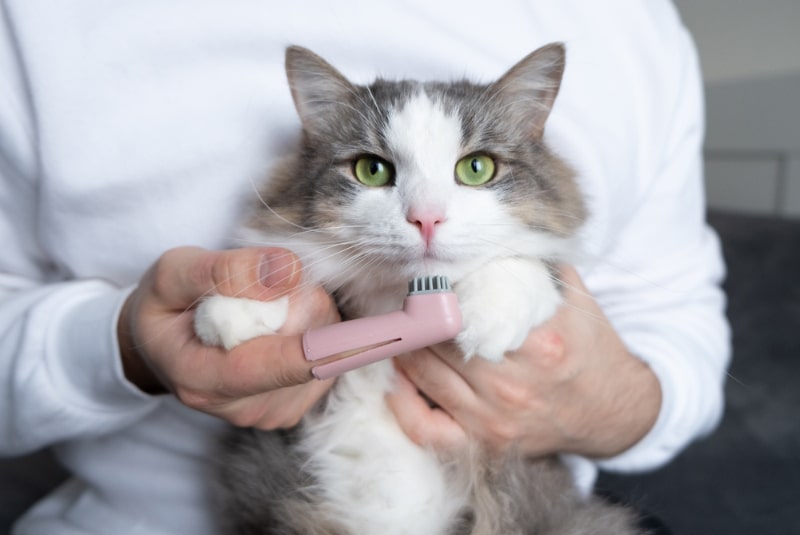Cleaning cats’ teeth is one of the most important tasks pet parents can do to keep their pets happy, healthy, and in good shape, and there aren’t many cons to discuss regarding cats and dental care. Regular cleanings are essential for keeping dental disease at bay, which can be painful, make it difficult for cats to eat, and lead to a range of potentially serious health consequences.
Regular brushing and professional cleanings can minimize cats’ chances of developing periodontal disease and losing teeth as they age. Keep reading to learn more about the importance of cleaning cats’ teeth.
The 6 Advantages of Cleaning Your Cat’s Teeth
1. Prevents Problems From Developing
Dental disease starts relatively quietly with the accumulation of plaque on cats’ teeth, which can develop into tartar if not removed relatively quickly. Tartar that’s allowed to remain irritates cats’ gums, leading to gingivitis and, ultimately, periodontal disease, which can result in tooth loss and resorption.
Home dental care and professional cleanings are two of the best ways to prevent problems from getting started and gaining traction.
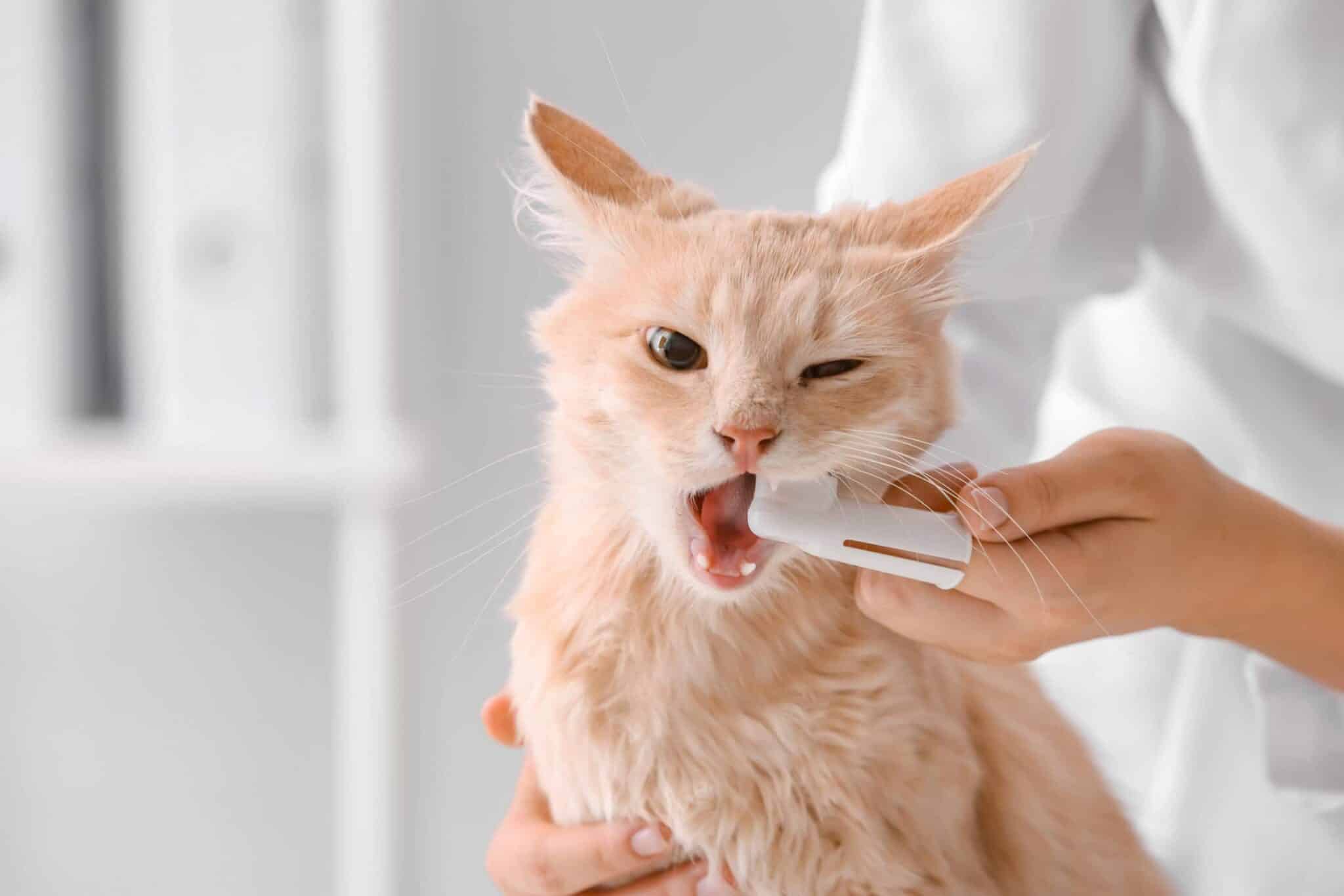
2. Improves Feline Breath
Cats suffering from dental problems often have bad breath. While a slight odor is pretty standard, halitosis can be a clue that their teeth must be cleaned more often. Their breath usually improves after professional cleaning to get rid of the accumulated plaque and tartar.
3. Reduces the Likelihood of Developing Certain Chronic Conditions
Keeping cats’ teeth in top shape affects their overall health. Pets with gum disease and tooth problems are at increased risk of developing conditions such as kidney and heart disease. These diseases are often chronic and generally worsen over time; many can only be managed instead of cured.
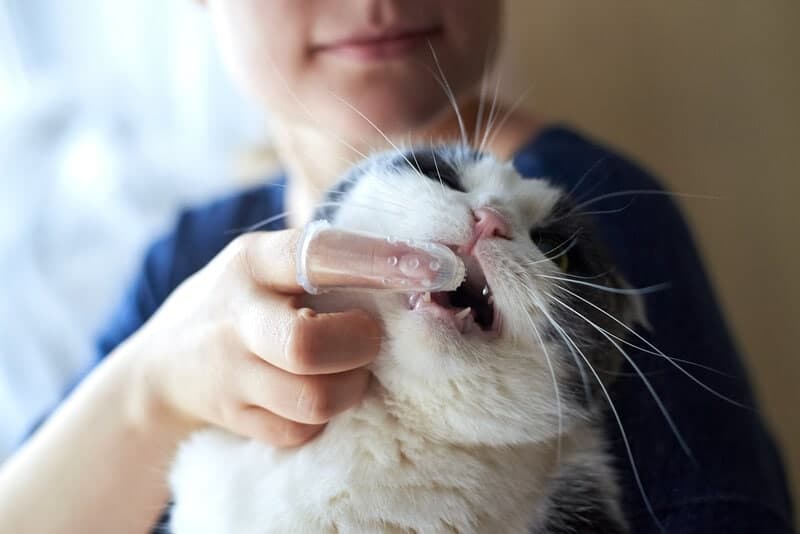
4. Lowers the Risk of Developing Serious Dental Disease
Regular attention to cats’ dental health from the time they’re young can go a long way toward preventing the development of problems later on. Around 50% to 90% of cats over the age of 4 have a dental problem.
Cats require regular cleanings starting when they’re around 1 year old, which can prevent dental problems from progressing.
5. Provides a Chance to Fix Issues
Addressing and remedying existing dental issues starts with a thorough evaluation by a veterinarian to get an idea of the overall condition of a cat’s teeth. Professional cleanings under anesthesia allow veterinarians to discover and treat problems at the same time.
Keep in mind that it can sometimes be challenging to determine the full extent of what needs to be done until cats are under anesthesia. A visual inspection cannot determine what’s going on under the gumline.
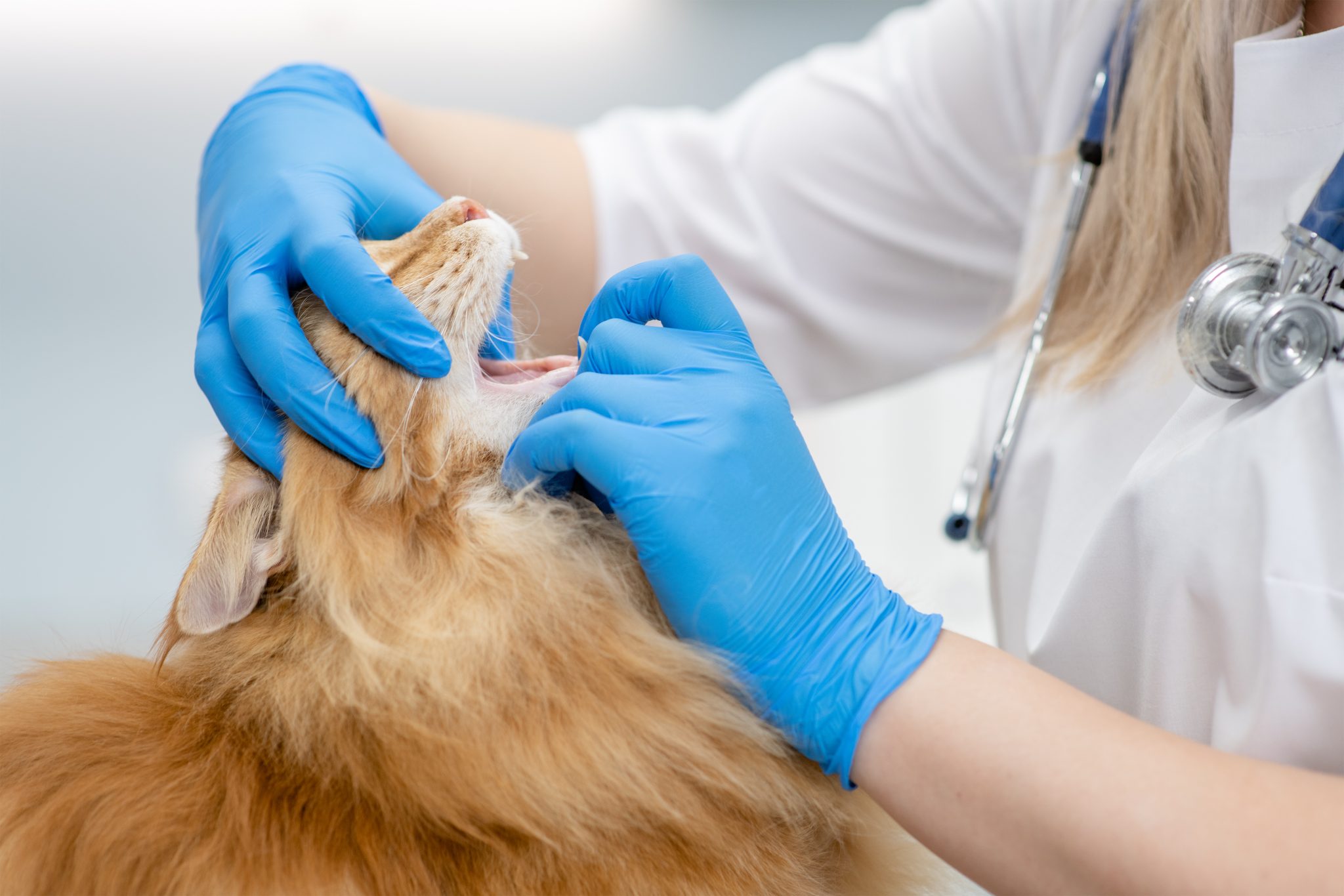
What Are the Disadvantages of Having Cats’ Teeth Cleaned?
The use of anesthesia is the biggest concern regarding feline dental care. According to the American Animal Hospital Association (AAHA), anesthesia is required to ensure stress and pain-free cleanings. It also allows veterinarians to conduct a complete examination.
Veterinarians usually perform tests to ensure cats are healthy enough to be anesthetized and don’t have any health issues that could cause problems during the procedure before getting started. Vital signs, such as heart rate, blood pressure, and temperature, are monitored to ensure safety.
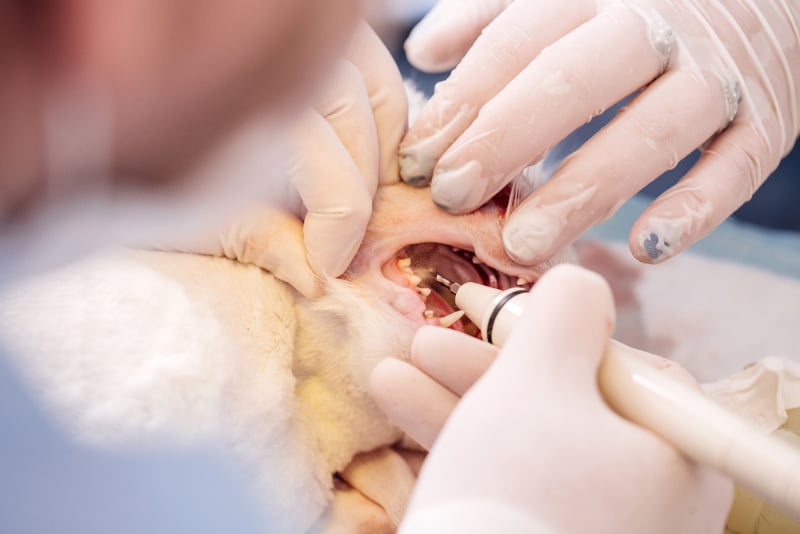
Price Guide
There can be a fair amount of variation in cost when it comes to dental cleanings, as prices depend on factors such as location and the extent of whatever work is required. Veterinarians in large cities often charge more for procedures than those working in smaller towns and rural areas, so how much pet parents spend can depend greatly on where they live.
| San Diego, CA | Chicago, IL | Greenville, SC | Atlanta, GA | New York, NY |
| $473.95 | $424.95 | $380.95 | $408.95 | $491.95 |
The previous estimates included anesthesia, monitoring, and initial blood tests. Costs also vary depending on the type of work required. Standard preventive dental care generally adds up to less than more complex procedures to deal with periodontal disease.
Older cats and those suffering from health conditions often require things like preoperative blood work that can increase costs.
Many veterinarians charge separately for X-rays, which are often required to get a real idea of what needs to be done. Extractions can quickly drive up the price and come with extra costs, such as medication.
Frequently Asked Questions
How Often Do Cats Need Dental Cleanings?
Veterinarians recommend that cats have their teeth cleaned about once a year. However, pets with severe problems may benefit from more frequent cleanings, and some may be able to go longer between visits, particularly if plaque and tartar don’t have a chance to accumulate on their teeth due to regular brushings.
Are There Ways to Improve Cat Dental Health?
Regularly brushing their teeth is perhaps the most important thing pet parents can do at home to support their companions’ dental health. Cat-friendly toothpaste should be used since human brands contain fluoride and other ingredients that can make cats sick.
Aim for at least two to three sessions per week. There are also diets specifically made to support dental health, but veterinary guidance should always be sought before changing your cat’s diet.
Dental treats and products that can be added to water can also reduce tartar accumulation. Matatabi sticks can keep cats’ teeth clean and provide entertainment at the same time. Access to fresh water is also crucial since a few sips after eating can rinse away leftover bits of food.
Conclusion
Taking care of cats’ teeth goes a long way toward supporting their health and longevity. Regular tooth brushing can reduce tartar accumulation on their teeth, which can help stave off the development of gingivitis and painful periodontal disease.
Stimulating their gums may also help encourage optimal dental health, and dental treats and matatabi sticks can be useful. Special diets for supporting dental health are available, and dental additives can be added to water to ensure cats’ teeth stay healthy and strong.
Featured Image Credit: Kashaeva Irina, Shutterstock
Contents
- The 6 Advantages of Cleaning Your Cat’s Teeth
- 1. Prevents Problems From Developing
- 2. Improves Feline Breath
- 3. Reduces the Likelihood of Developing Certain Chronic Conditions
- 4. Lowers the Risk of Developing Serious Dental Disease
- 5. Provides a Chance to Fix Issues
- What Are the Disadvantages of Having Cats’ Teeth Cleaned?
- Price Guide
- Frequently Asked Questions
- Conclusion

